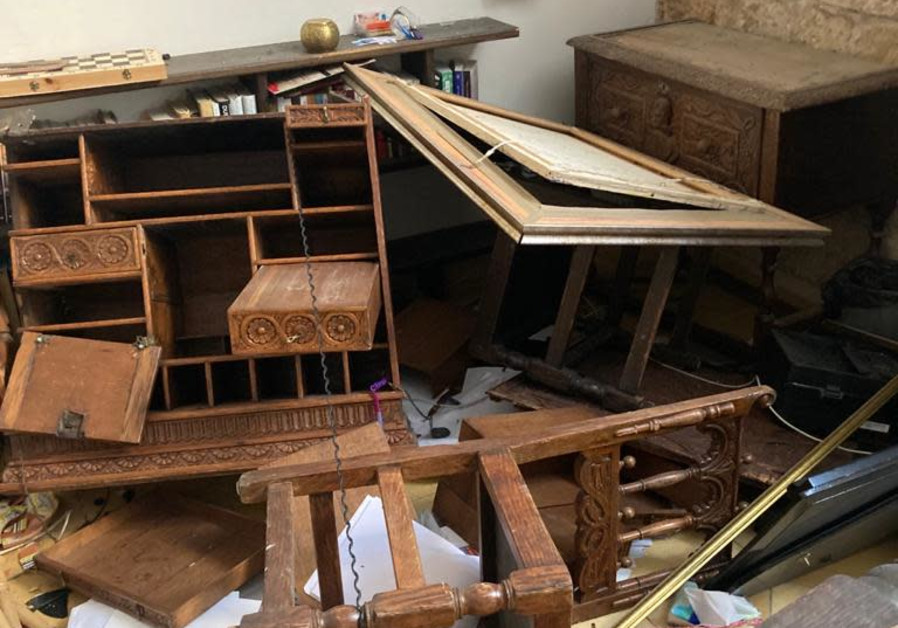The Arabesque Hotel had made a name for itself as a comfortable stay for visitors from near and far wishing to see the Old City of Acre up close. The building was beautiful, an antique; exactly as one would imagine a residency home for the in-and-out artist to appear.
But that façade was ripped to shreds last week when Arab rioters broke in and destroyed the frozen-in-time relic. But the owner of the hotel, Evan Fallenberg, does not want this to further widen the gap between Arabs and Jews in Israeli society; on the contrary, he wants people to come together now more than ever.
As tensions reached a peak in Israel, with escalations between Israel and Gaza as well as riots by both Arabs and Jews targeting one another, many have fallen victim to the hate being spewed left and right.
But a 500-year-old building, renovated into a hotel by a Jew and engulfed by love and support from Arabs and Jews alike in the surrounding neighborhood, would not have been the most obvious target.
Fallenberg, the writer, novelist and translator who turned structure into a boutique hotel, told The Jerusalem Post that when it came down to it, the Arab neighbors of the special facility were its biggest defenders.
“The neighboring community stood up for us and tried to convince the mob not to ransack our place,” Fallenberg said, explaining that many Jewish homes and businesses were ransacked on Tuesday night as the riots kicked off throughout the country. “By the second evening, it just couldn’t hold out and there was just too much pressure. I believe we were the last Jewish property to be ransacked.”
Fallenberg had initially purchased the location as a home. It was run-down and looked worn, but that just provided him with a project to renovate. As it came together, Fallenberg decided that the place would be best suited as a hotel and artists’ retreat.
At the same time, Fallenberg was embraced by the surrounding community of both Muslim and Christian Arabs with open arms.
That’s why it felt so shocking when he arrived at Arabesque the morning after the riots to find the place completely wrecked.
“Pretty much everything was destroyed,” he said.

Art and televisions were thrown across the floor while sinks and doors were broken in half. Strangely, books and ceramic art were left unscathed, but what most impacted Fallenberg was the state of the piano: flipped over on the ground.
The grand piano, he explained, had been in his family since the 1940s and was brought to Israel the following decade.
“I fully expected to come in the morning and play the piano, and it was literally upended, which takes not a few people to do,” Fallenberg told the Post.
Despite the awful circumstances, he did not truly feel the pain until the staff came to visit. “It felt like a shiva [Jewish mourning period],” he said. “I sat there, people would come in, we’d cry and joke, then the next person would come in and it all happened again. We were mourning Arabesque. The staff was all saying, ‘We’ll be back, we’ll get this place back on its feet.’
“I’m having incredible conversations with people who I was lucky enough to surround myself with,” he said, referring to his Arab neighbors. “They need support, too, because what’s happening to the city they love is heartbreaking.
“What I don’t want is for people to see these photographs and to say, ‘See?’ It mustn’t be an incitement,” Fallenberg said. “I see it the other way: It must be stopped so that the rest of us, who created beauty and friendship and progress, can continue and so that this sort of madness can’t happen.”
